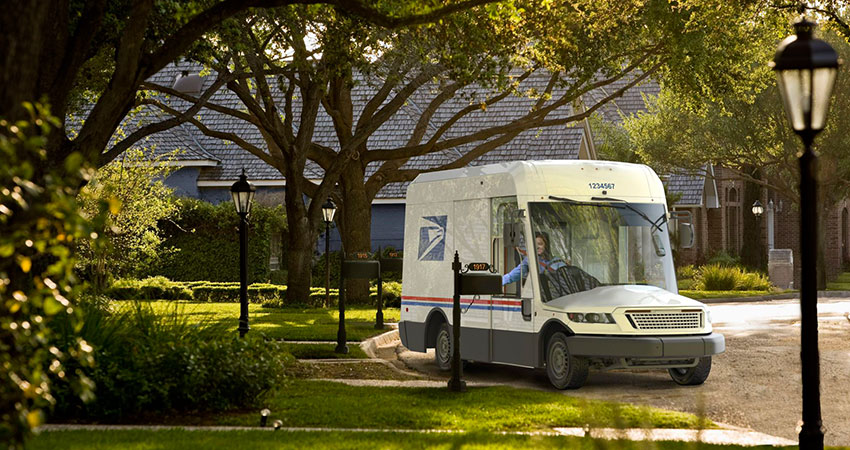The U.S. Postal Service has awarded Ford a contract to deliver 9,250 electric delivery vehicles, while ordering an equal number of diesel-powered Dodge Ram vans to fill its immediate needs, plus 14,000 charging stations from three separate firms.
The contract with Ford is part of the first phase of a fleet purchase plan announced in December that called for acquiring 21,000 EVs for postal delivery. The Ford EVs, manufactured in Kansas City, Mo., will begin arriving in December, a month after the Chrysler vehicles start rolling in.
Contracts totaling $260 million for the first phase of charging stations were awarded by the USPS to Blink Charging Company, Siemens and Rexel Energy. They will be installed at a minimum of 75 locations over the next 12 months and ramped up thereafter.
“We are moving forward with our plans to simultaneously improve our service, reduce our cost, grow our revenue and improve the working environment for our employees,” said Postmaster General Louis DeJoy in a release. “Electrification of our vehicle fleet is now an important component of these initiatives. We have developed a strategy that mitigates both cost and risk of deployment, which enable execution on this initiative to begin now.”
Overall, the USPS plans to spend $9.6 billion on new vehicles and EV infrastructure, including $3 billion allocated from the 2022 Inflation Reduction Act. Over the next five years, 75% of the vehicle purchases will be EVs, and thereafter 100% will be electric powered.
In total, the USPS will purchase a minimum of 66,000 EVs between now and 2028. The Ford and Chrysler contracts announced Tuesday represent a total outlay of $1.027 billion. Many of the 217,000 vehicles in the current Grumman fleet are more than 30 years old.
The USPS has faced continual heat from Democrats in Congress, many state attorneys general and a number of environmental groups over its electrification plan. Opponents said it doesn’t go fast or far enough toward creating an all-EV fleet. The fact that federal funds from the $430 billion climate act were being used for the USPS purchases was a particular point of contention.
In the wake of the massive opposition, USPS altered its fleet purchase plan in December, increasing the percentage of EVs from 20% to 62.3%.
But the stepped-up efforts are still not enough for some. “The Postal Service should have finished its environmental review before also sinking millions in funding in the same number of combustion mail trucks that will pollute our neighborhoods for decades,” the group Earthjustice told Reuters, after applauding the Ford contract.

